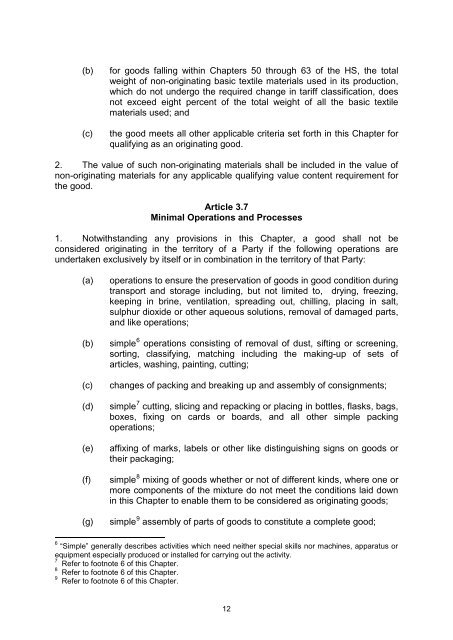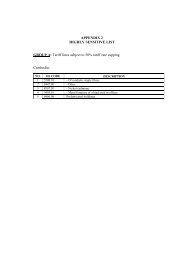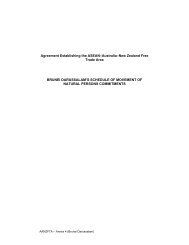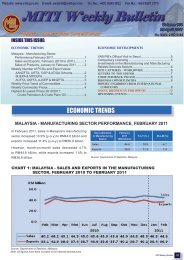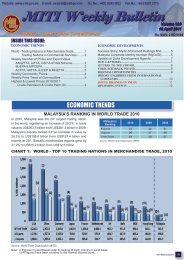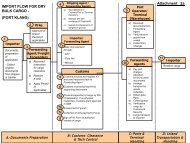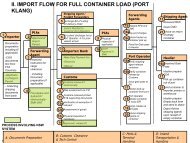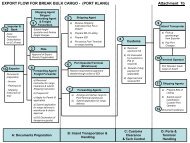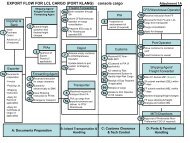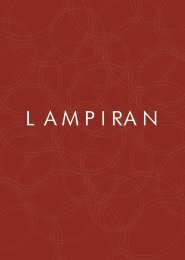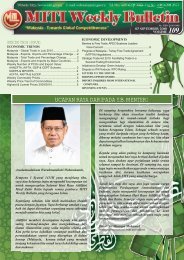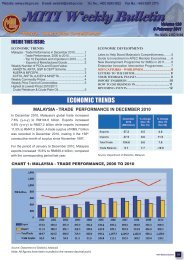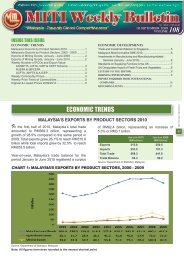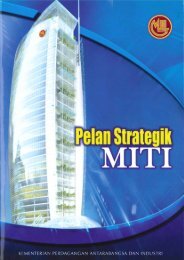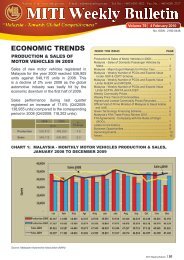comprehensive economic cooperation agreement between ... - MITI
comprehensive economic cooperation agreement between ... - MITI
comprehensive economic cooperation agreement between ... - MITI
Create successful ePaper yourself
Turn your PDF publications into a flip-book with our unique Google optimized e-Paper software.
(b) for goods falling within Chapters 50 through 63 of the HS, the total<br />
weight of non-originating basic textile materials used in its production,<br />
which do not undergo the required change in tariff classification, does<br />
not exceed eight percent of the total weight of all the basic textile<br />
materials used; and<br />
(c) the good meets all other applicable criteria set forth in this Chapter for<br />
qualifying as an originating good.<br />
2. The value of such non-originating materials shall be included in the value of<br />
non-originating materials for any applicable qualifying value content requirement for<br />
the good.<br />
Article 3.7<br />
Minimal Operations and Processes<br />
1. Notwithstanding any provisions in this Chapter, a good shall not be<br />
considered originating in the territory of a Party if the following operations are<br />
undertaken exclusively by itself or in combination in the territory of that Party:<br />
(a) operations to ensure the preservation of goods in good condition during<br />
transport and storage including, but not limited to, drying, freezing,<br />
keeping in brine, ventilation, spreading out, chilling, placing in salt,<br />
sulphur dioxide or other aqueous solutions, removal of damaged parts,<br />
and like operations;<br />
(b) simple 6<br />
operations consisting of removal of dust, sifting or screening,<br />
sorting, classifying, matching including the making-up of sets of<br />
articles, washing, painting, cutting;<br />
(c) changes of packing and breaking up and assembly of consignments;<br />
7<br />
(d) simple cutting, slicing and repacking or placing in bottles, flasks, bags,<br />
boxes, fixing on cards or boards, and all other simple packing<br />
operations;<br />
(e) affixing of marks, labels or other like distinguishing signs on goods or<br />
their packaging;<br />
8<br />
(f) simple mixing of goods whether or not of different kinds, where one or<br />
more components of the mixture do not meet the conditions laid down<br />
in this Chapter to enable them to be considered as originating goods;<br />
(g) simple<br />
9<br />
assembly of parts of goods to constitute a complete good;<br />
6<br />
“Simple” generally describes activities which need neither special skills nor machines, apparatus or<br />
equipment especially produced or installed for carrying out the activity.<br />
7<br />
Refer to footnote 6 of this Chapter.<br />
8<br />
Refer to footnote 6 of this Chapter.<br />
9<br />
Refer to footnote 6 of this Chapter.<br />
12


